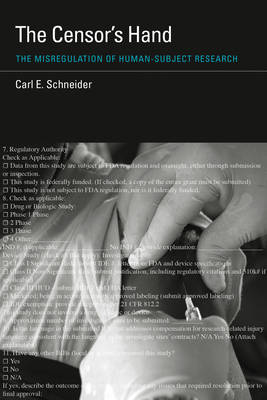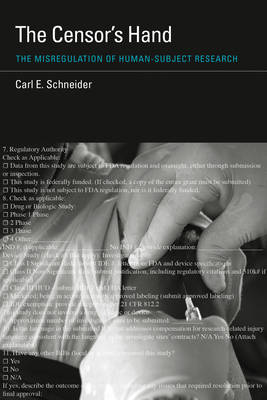
- Retrait gratuit dans votre magasin Club
- 7.000.000 titres dans notre catalogue
- Payer en toute sécurité
- Toujours un magasin près de chez vous
- Retrait gratuit dans votre magasin Club
- 7.000.0000 titres dans notre catalogue
- Payer en toute sécurité
- Toujours un magasin près de chez vous
Description
Medical and social progress depend on research with human subjects. When that research is done in institutions getting federal money, it is regulated (often minutely) by federally required and supervised bureaucracies called "institutional review boards" (IRBs). Do--can--these IRBs do more harm than good? In The Censor's Hand, Schneider addresses this crucial but long-unasked question.
Schneider answers the question by consulting a critical but ignored experience--the law's learning about regulation--and by amassing empirical evidence that is scattered around many literatures. He concludes that IRBs were fundamentally misconceived. Their usefulness to human subjects is doubtful, but they clearly delay, distort, and deter research that can save people's lives, soothe their suffering, and enhance their welfare. IRBs demonstrably make decisions poorly. They cannot be expected to make decisions well, for they lack the expertise, ethical principles, legal rules, effective procedures, and accountability essential to good regulation. And IRBs are censors in the place censorship is most damaging--universities.
In sum, Schneider argues that IRBs are bad regulation that inescapably do more harm than good. They were an irreparable mistake that should be abandoned so that research can be conducted properly and regulated sensibly.
Spécifications
Parties prenantes
- Auteur(s) :
- Editeur:
Contenu
- Nombre de pages :
- 296
- Langue:
- Anglais
- Collection :
Caractéristiques
- EAN:
- 9780262028912
- Date de parution :
- 10-04-15
- Format:
- Livre relié
- Format numérique:
- Genaaid
- Dimensions :
- 157 mm x 231 mm
- Poids :
- 498 g







